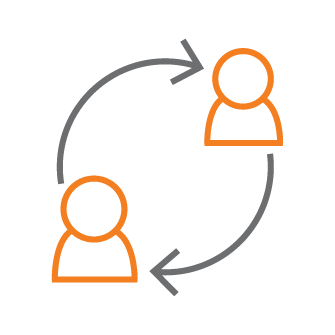The H2020 project "Twinning coordination action for spreading excellence in Aerial Robotics - AeRoTwin" and Laboratory for Robotics and Intelligent Control Systems - LARICS invite you to the lecture:
"Human-robot collaboration to extend space missions through telerobotics"
by
Dr. Neal Y. Lii, German Aerospace Center (DLR)
which will be held on 6 March 2020 at 09:40 in the Auditorium Hall at the Faculty of Electrical Engineering and Computing, Zagreb, Croatia. The lecture will be held within European Space Agency (ESA)- Croatia regional workshop 'Space powering the Green Deal and the Digital Economy'.
Abstract
Robotics is playing an increasingly valuable role in space missions. From rovers on Mars, the moon, and other celestial bodies, to the Canadarm on board the space shuttle and the ISS, robotics have helped us in a wide variety of ways in learning about, and operating in space. On the other hand, human supervision should remain at top of the command chain of mission operation. Superior human intelligence and reasoning capability further enhance robotic functionalities in handling mundane, repetitive tasks, as well as the hazardous and harsh environments of space. This collaborative working relationship helps to ensure safety and increase mission success.
This talk focuses on the possibilities for space missions using human-robot collaboration with telerobotics. We will explore together the various modalities of commanding different types of robotic assets to perform increasingly complex tasks. From immersive teleoperation of robots as avatars with haptic telepresence, to supervised autonomy of intelligent co-workers, we can examine how to best utilize robotics with humans in charge. We will look through the lens of several space telerobotics experiments carried out by several agencies, as well as the visions put forth by the space community to bring human-robot collaboration forward.
Biography
Neal Y. Lii received the Bachelor of Science in Aerospace Engineering from Purdue University, USA in 1995, Master of Science in Mechanical Engineering from Stanford University, USA in 1999, and the Ph.D. degree from University of Cambridge, UK, in 2009. he served as the Principal Investigator of the ISS-to-Earth telerobotic experiments, METERON SUPVIS Justin until its conclusion in 2018. He is the head of the Modular Dexterous Robots (MODEX) Lab and Teleoperation and Supervised Autonomy Group, as well as the domain head of Robotic Assistance, all at the Robotics and Mechatronics Center of the German Aerospace Center (DLR).







